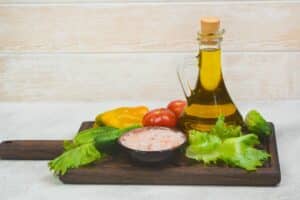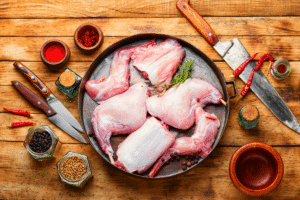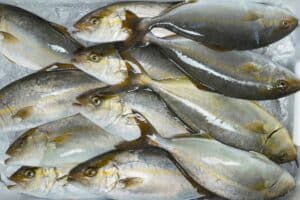Chia seeds have become a pantry staple. They’re healthy, tasty and versatile, making them a great addition to all sorts of dishes, from breakfast to dessert!
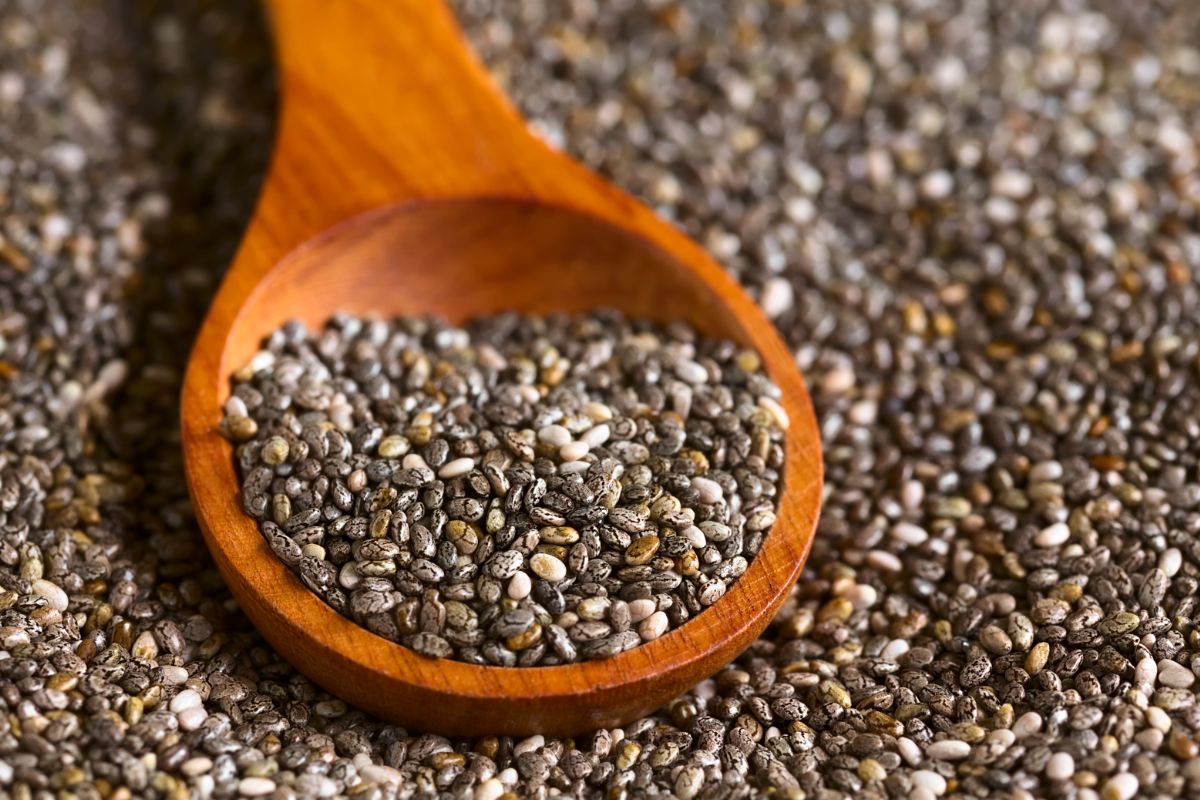
These powerful little seeds also have a pretty long shelf life, and with the right care, they can last for years in your pantry. However, like all foods, chia seeds will eventually go bad. This is why storing them correctly is so important.
If you want to extend the shelf life of your chia seeds, we’re here to deliver the ultimate guide to chia seeds. Learn more about their health benefits, how to store them, signs of spoilage, and more.
What Are Chia Seeds?
Chia seeds are a type of edible seed sourced from the Salvia hispanica, a type of flowering plant from the mint family. Chia seeds are extremely nutritious and have even been branded a ‘superfood’ due to their incredible health benefits.
The Health Benefits Of Chia Seeds
So, what makes chia seeds so great? These little seeds are a popular addition to many people’s diets and for good reason.
Before we take a closer look at the health benefits of chia seeds, let’s take a look at their nutritional profile. Just one ounce of chia seeds contains:
- 9.8 grams of fiber
- 9.7 grams of fat
- 4.7 grams of protein
- 138 calories
- 5 grams of alpha-linolenic acid (ALA)
- 23% of the daily value of magnesium
- 12% of the daily value of iron
- 14% of the daily value of calcium
- 15% of the daily value of vitamin B1
- 16% of the daily value of vitamin B3
- 12% of the daily value of zinc
- 20% of the daily value of phosphorous
With such an impressive nutritional profile, it’ll come as no surprise that adding chia seeds to your diet can have some great health benefits, including:
Could Lower The Risk Of Heart Disease
Adding chia seeds to your diet could help reduce the risk of heart disease. Chia seeds are rich in omega-3s and fiber, especially soluble fiber, which can help reduce the amount of ‘bad’ cholesterol in your blood (LDL), and reduce your risk of heart disease.
ALA, the main fatty acid found in chia seeds, is also thought to help lower the risk of developing heart disease.
May Support Bone Health
Chia seeds may even help support your bone health. Chia seeds contain several nutrients that are essential to bone health, including magnesium, phosphorus, and calcium.
It’s thought that getting enough of these nutrients in your diet can help maintain your bone mineral density, and keep your bones strong and healthy.
Contain Plenty Of Antioxidants
Chia seeds are extremely rich in antioxidants, which are proven to reduce the presence of free radicals in the body.
Free radicals can damage the cell compounds in the body, and lead to diseases such as cancer. Consuming a diet that’s rich in antioxidants may also help lower blood pressure and protect the liver.
Can Chia Seeds Go Bad?
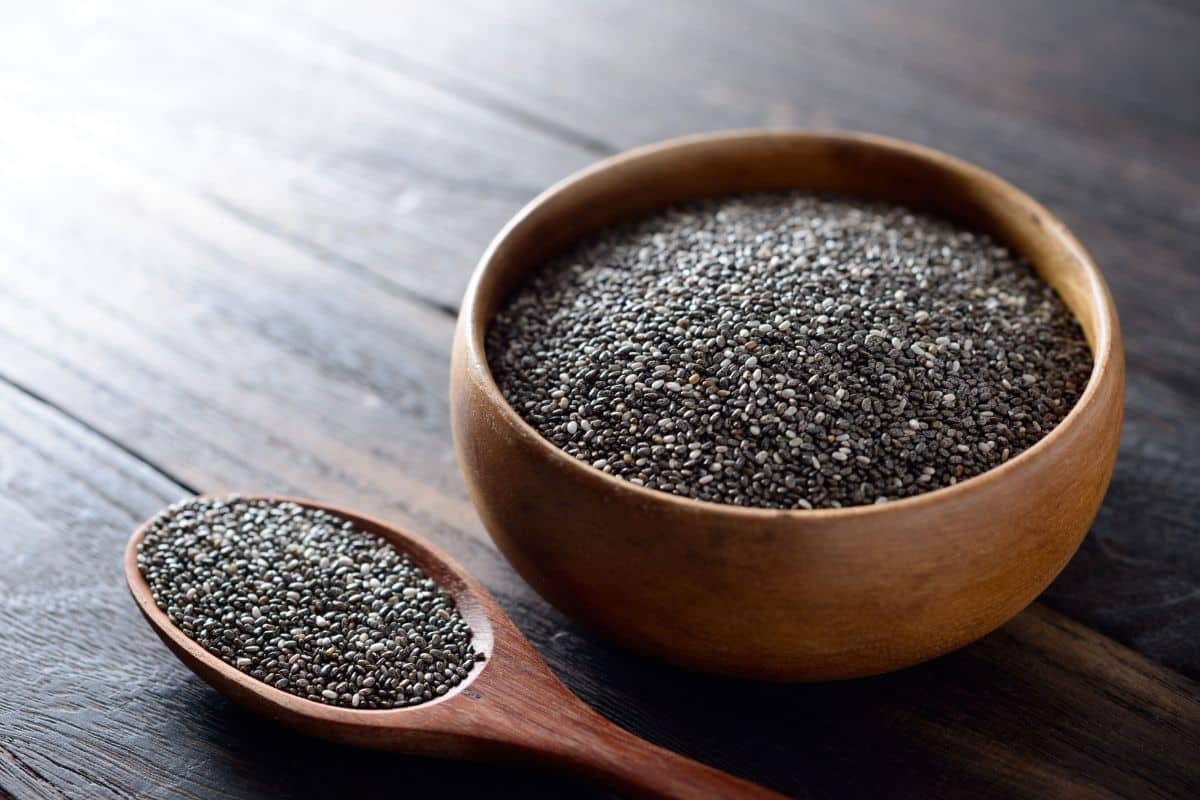
There are plenty of reasons to start adding chia seeds to your diet. However, there are a few things you should know about chia seeds first, including their shelf life and spoilage. The short answer is yes, like all foods, chia seeds will eventually go bad.
However, they can often last for a few years before they start going rancid, which means you have plenty of time to make the most of them. This is good news because sometimes, working your way through a bag of chia seeds can feel like it’s taking a lifetime!
In fact, if you store your chia seeds correctly, they can last as long as 4-5 years without refrigeration. Even once the bag is open, the seeds can still last for months or years depending on their storage conditions.
How To Store Chia Seeds?
If you want to prevent your chia seeds from going bad, you’ll need to store them correctly. Ideally, you should be storing your chia seeds in a cool, dry place.
You should also avoid storing them in warm temperatures or direct sunlight, as this can make them go rancid much faster.
Once you’ve opened your bag of chia seeds, it’s best to store them in an airtight container or reseal the bag to prevent them from going bad. Although you can store your chia seeds in the refrigerator, you don’t need to.
Because of their high amount of antioxidants, chia seeds can be stored safely in a cupboard or your pantry. However, storing them in the refrigerator is likely to extend their shelf life.
If you’re storing your chia seeds in the refrigerator, you should still ensure they’re packaged in an airtight container or bag to keep them free of moisture.
How To Tell If Chia Seeds Have Gone Bad?
So, how can you tell if your chia seeds are no longer safe to eat? Here are a few signs that your chia seeds should be tossed, not eaten:
- They’re Rancid: Bad chia seeds may start to form mold or smell extremely unpleasant, which is a sign they’ve gone rancid. In this case, they should be thrown away immediately.
- Seeds Are Clumped Together: If your chia seeds have become clumped together or they’re sticking to the sides of the bag or container, they are probably starting to go rancid.
- They Have Bugs in Them: In some cases, rancid chia seeds may become infested with bugs. Small bugs and pests are often attracted to the cupboards and pantries, which can make your chia seeds a prime target. If you notice any bugs or eggs on your seeds, it goes without saying that they should be thrown immediately.
- Mold or Moisture: If your bag of chia seeds has become moist on the inside, it will start developing mold. If you notice any moisture inside the bag, it’s best to throw away your chia seeds.
Can You Eat Expired Chia Seeds?
As long as your chia seeds smell and look normal, it’s usually fine to eat them past their expiry date. However, if they’re past their expiry date and are showing any signs of spoilage, you should toss them immediately.
Chia seeds can take a long time to spoil, and generally, their ‘use-by’ date is a rough estimate on how long they should be stored for. However, if your chia seeds are unopened or they’ve been stored correctly, they may be usable long after their expiry date.
Eating chia seeds past their expiration date will probably not make you sick, as long as they’re not showing any signs of spoilage. However, if you’ve eaten seeds that show visible signs of spoilage, you may experience some unpleasant symptoms.
Can You Freeze Chia Seeds?
If you want to extend their shelf life even further, you can also freeze your chia seeds. Frozen chia seeds can remain safe to eat for up to 10 years, which is pretty impressive!
To freeze your chia seeds correctly, ensure they’re stored in an airtight container, and dry them thoroughly before freezing. Ensuring your chia seeds are dry before freezing them is essential.
When wet chia seeds come into contact with frozen water, their seeds can start to swell up and the seeds will eventually gel together. This will result in unusable seeds.
The Bottom Line
When stored correctly, chia seeds can survive safely in your pantry or refrigerator for years! Remember to store your chia seeds in an airtight container, and keep them away from high temperature or direct sunlight.
To extend their life even further, you could store your chia seeds in the refrigerator or freezer, where they can last for up to ten years! Remember: If your chia seeds show any signs of spoilage, don’t take any chances and toss them immediately.



